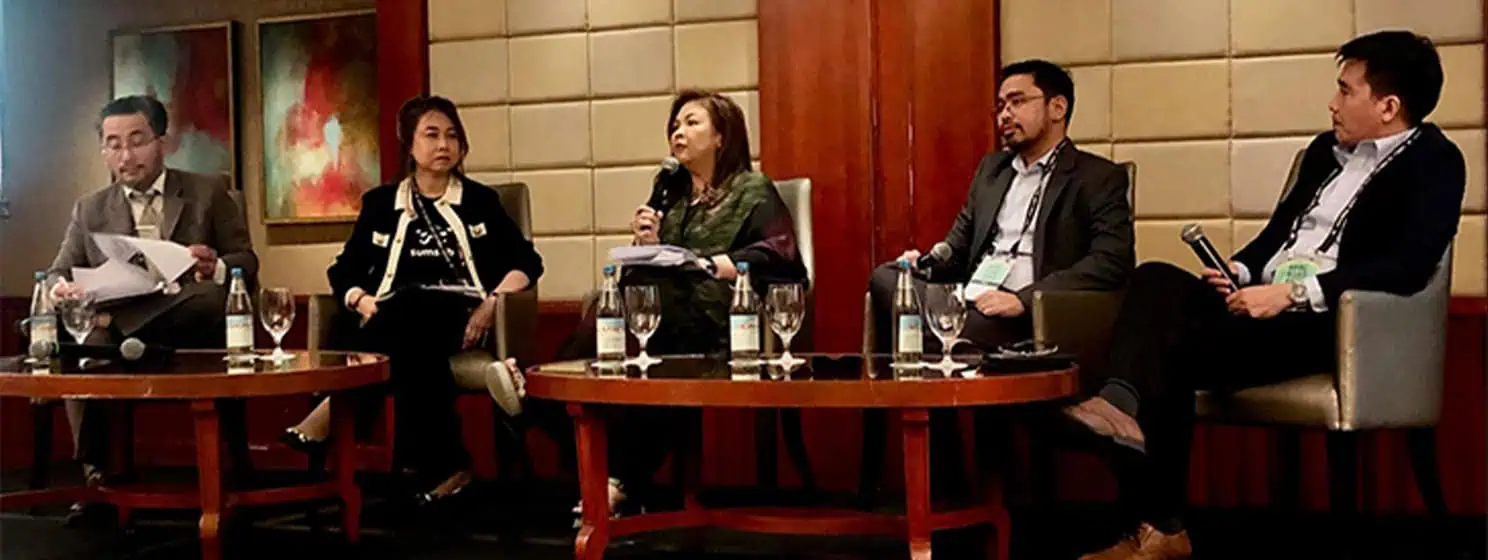|
Getting your Trinity Audio player ready...
|
Fraud is evolving. In an increasingly digital world, where technological advancements bring convenience, they also breed new forms of cyber threats. These threats, ranging from phishing scams to deepfakes, pose significant challenges across industries, especially in the areas of financial services and personal security.
At a recent APAC Anti-Fraud Roadshow, experts convened to discuss the pressing issues and innovative solutions in combating these cyber threats. Among them were Penny Chai, SumSub VP of Business Development; Edmund Ray Milanes, Head of Orion Managed Security Services at Nexus Technologies; and Chuan Wee Lye, SumSub Senior Business Development Manager.
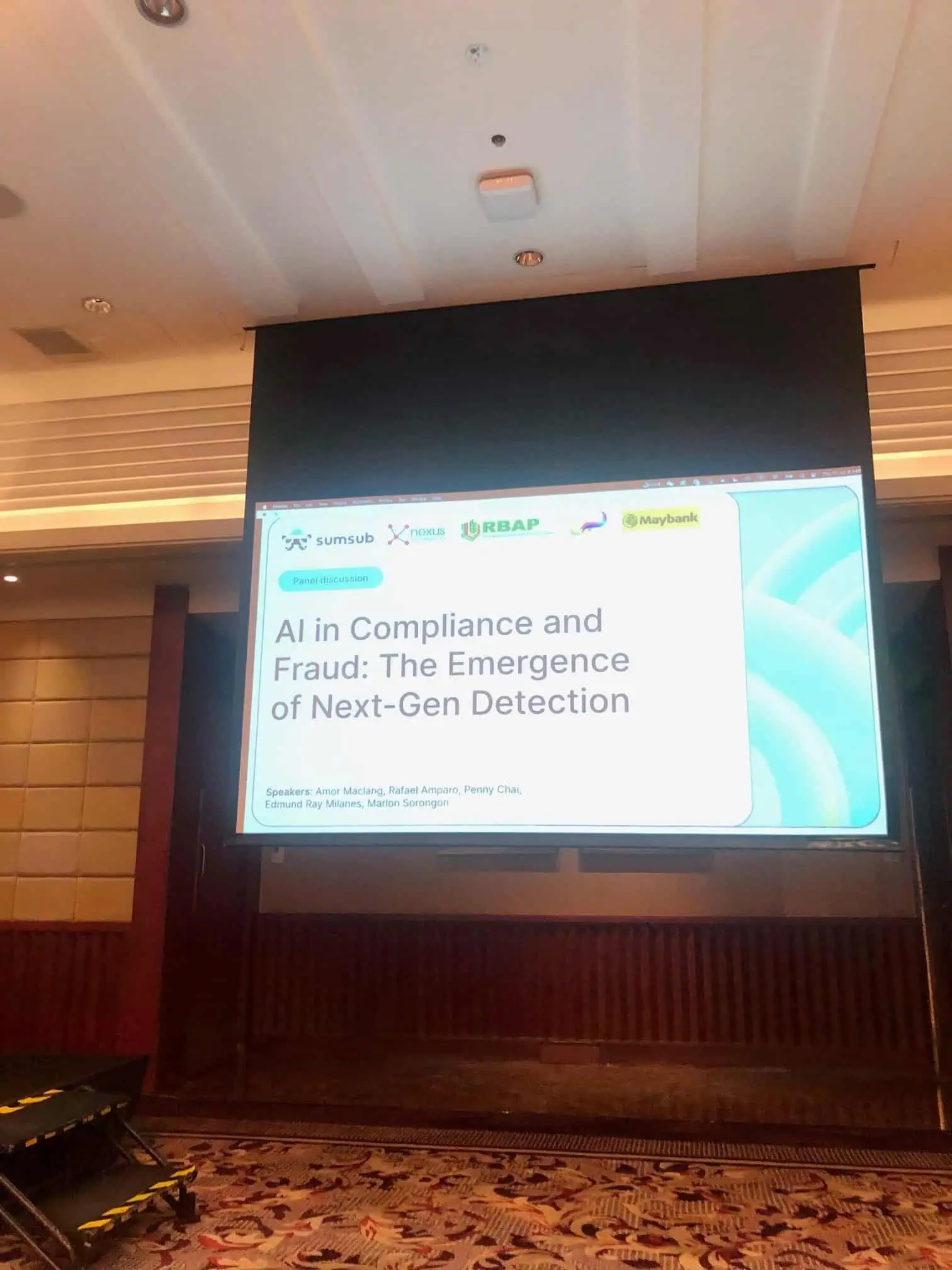
Chuan painted a harsh reality of the fraud landscape in the Philippines, noting that “In 2022 alone, $623 million was lost to phishing fraud, and another $409 million from account takeovers. These figures underscore the severity of the problem, exacerbated by underreporting due to embarrassment.” He emphasized the need for robust measures like the Anti-Financial Accounts Gaming Act to curb such financial crimes.
Reflecting on the impact of AI, Chuan Wee Lye highlighted its dual nature: “AI empowers both consumers and fraudsters alike. The proliferation of deepfakes, for instance, has increased 45 times, making identity theft and automated fraud easier than ever.”
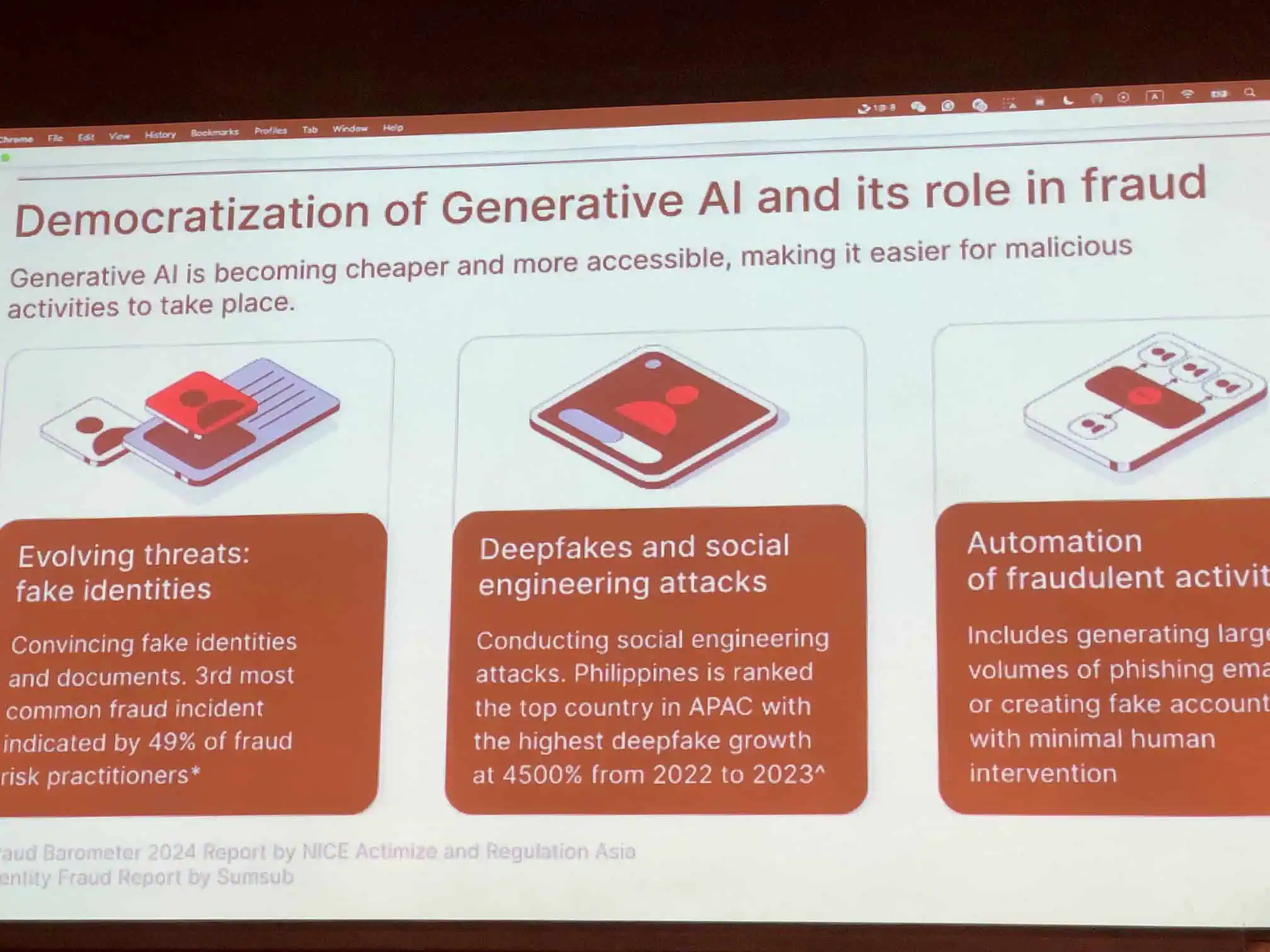
Chai elaborated on the vulnerabilities in current verification systems: “There are so many ways to spoof the system today. OTP, (One-Time Passwords) once a trusted method, is now easily copied.” She stressed the importance of AI in fraud detection, stating, “We incorporate AI into our technology to combat these threats effectively.”
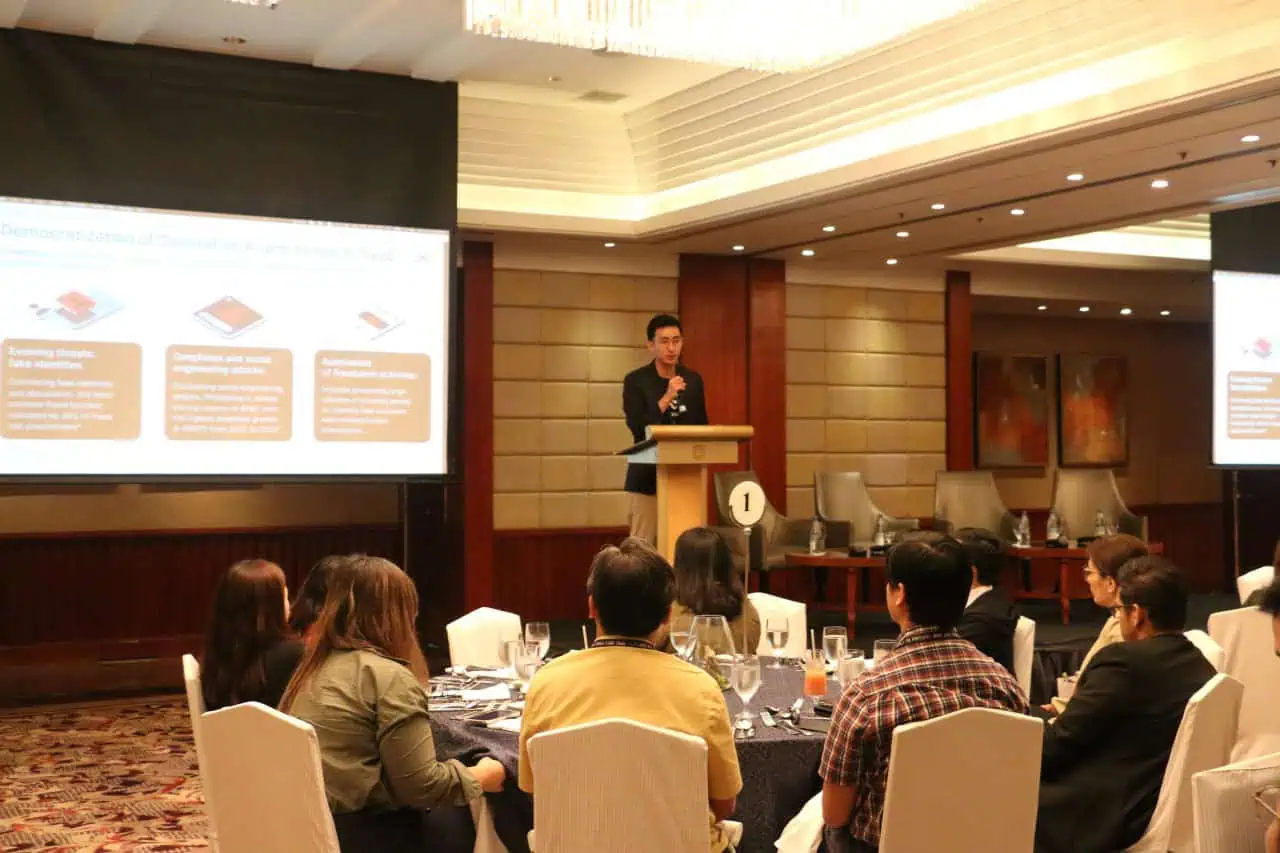
Milanes delved into emerging cybersecurity threats, noting, “Phishing remains a primary concern, coupled with social engineering. Biometric vulnerabilities, like master prints and deepfakes, further complicate security measures.”
“It’s not just about securing systems but also educating users to recognize and avoid potential threats,” he added, emphasizing the shared responsibility in cybersecurity.
Additionally, Milanes raised concerns about cybercriminals exploiting vulnerabilities in public websites and e-commerce platforms. He highlighted challenges posed by breaches in cloud infrastructure, including limited visibility for detecting and responding to threats. As these technologies become essential in business operations, Milanes stressed the need for comprehensive cybersecurity strategies, particularly in cloud security.
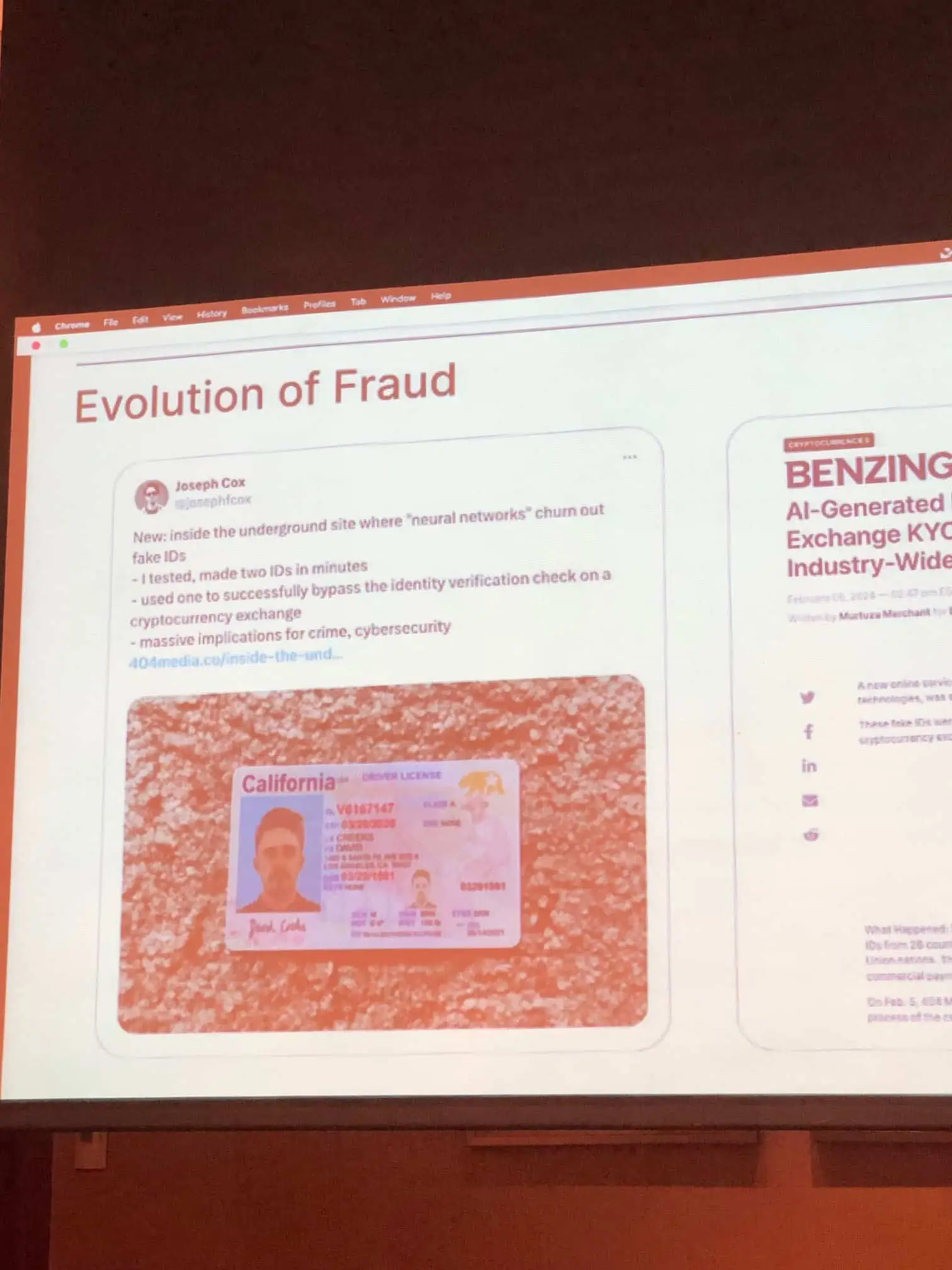
GeiserMaclang CEO and Founding Partner Amor Maclang, also a moderator in the panel discussion, highlighted the role of AI in averting fraud and promoting economic inclusion.
“AI technology finds applications beyond fraud prevention, contributing to broader economic security,” she said.
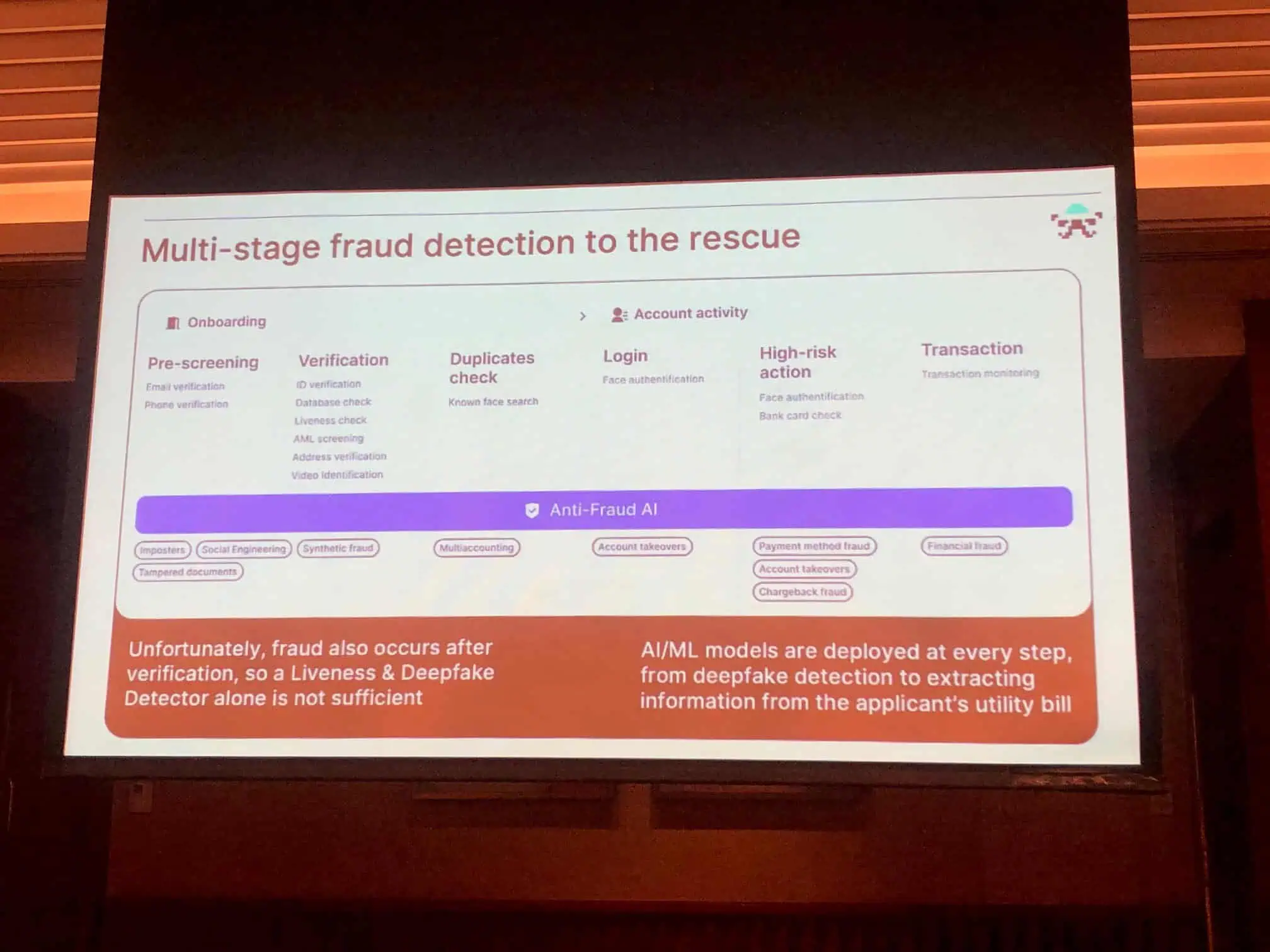
Maclang also discussed the Philippines’ stance on the Financial Action Task Force (FATF) gray list, focusing on how the country uses digital assets and digital currencies. She emphasized the role of AI in securing transactions and building trust in financial systems despite regulatory issues. Her insights stressed the need for tech advancements to create strong cybersecurity and boost economic stability and consumer trust.
“The importance of technological advancements ensures robust cybersecurity frameworks that foster economic stability and consumer confidence,” said Maclang.
Looking ahead, Milanes highlighted the need for continuous adaptation: “To combat AI-powered fraudulent activities, we must leverage AI ourselves to bridge the cybersecurity talent gap and enhance protective measures.”
The battle against cyber threats evolves as quickly as the technology itself. As AI continues to advance, so too must our defenses. Collaboration between industry, government, and cybersecurity experts remains crucial in safeguarding against emerging threats and ensuring a secure digital future. The APAC Anti-Fraud Roadshow provided a platform to discuss these critical issues, paving the way for proactive strategies and technological innovations in the ongoing fight against cybercrime.
In order for artificial intelligence (AI) to work right within the law and thrive in the face of growing challenges, it needs to integrate an enterprise blockchain system that ensures data input quality and ownership—allowing it to keep data safe while also guaranteeing the immutability of data. Check out CoinGeek’s coverage on this emerging tech to learn more why Enterprise blockchain will be the backbone of AI.
Watch: Cybersecurity fundamentals in today’s digital age with AI & Web3

 07-03-2025
07-03-2025 
